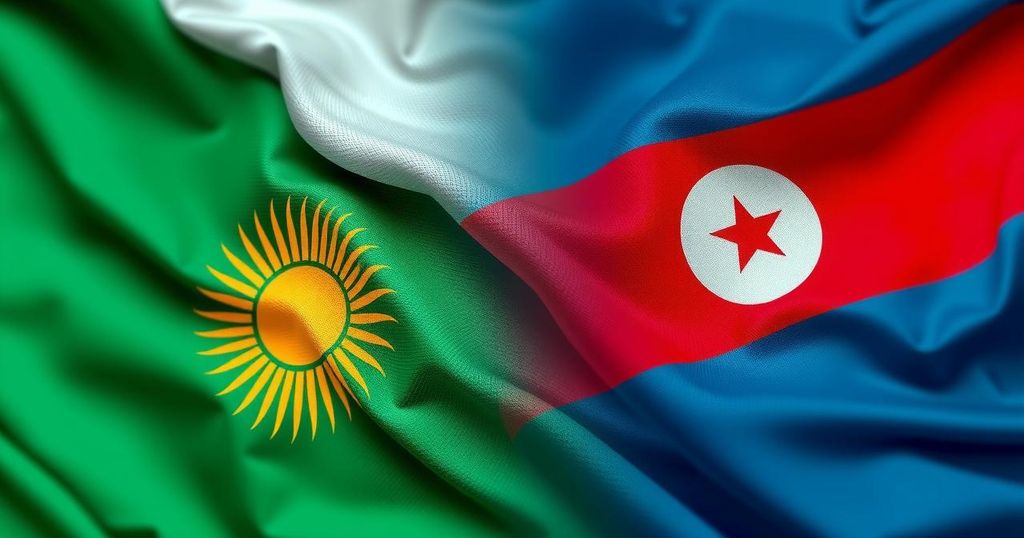Kyrgyzstan and Tajikistan Conclude Long-standing Border Dispute
Kyrgyzstan and Tajikistan have resolved their final border dispute with a demarcation deal, potentially ending decades of territorial conflict. The agreement follows years of violence, including a deadly clash in 2022. The deal was announced after a meeting between the security chiefs and is seen as a step toward improved relations between the two countries. With external powers vying for influence in the region, this cooperation could signal a positive trend in Central Asian diplomacy.
Kyrgyzstan and Tajikistan have recently finalized a border demarcation agreement, addressing the last unresolved segment of their shared frontier. This landmark development potentially resolves enduring territorial disputes that have persisted since the dissolution of the Soviet Union. Tensions over access to vital resources and water in this mountainous region had led to violent clashes in the past, including a significant conflict in 2022 that resulted in approximately 100 fatalities.
The agreement was solidified during a meeting between the security chiefs of both nations in the Kyrgyz city of Batken, marking a moment of cooperation between Bishkek and Dushanbe. The recent pact was mutual and has been characterized by the governments of both countries as a complete establishment of the delineated sections of their border. Their meeting was described as occurring in an atmosphere of friendship and understanding.
The border issues date back to Soviet administrative practices, which inadequately addressed the complex realities of the mountainous terrain. The recent violence surrounding these disputes came at a time when Russia, historically a significant power broker in the region, was distracted due to its ongoing conflict in Ukraine. Moreover, Kyrgyz and Tajik leaders had engaged in discussions about their border issues in a previous meeting at a UN summit, which fostered optimism for a resolution.
Both nations demonstrated a commitment to resolve the border conflicts, moving forward with official demarcation. As a positive development, these efforts reflect improved diplomatic relations among Central Asian nations as they navigate geopolitical challenges and external influences from powers like China, Turkey, and the European Union.
The relationship between Kyrgyzstan and Tajikistan has long been fraught with disputes regarding their shared border, which spans approximately 970 kilometers (600 miles). Following the dissolution of the Soviet Union in 1991, incomplete demarcations between the two countries led to significant territorial disputes. Access to water resources, crucial for the arid climate of Central Asia, has been a significant source of conflict. The recent agreement comes after years of sporadic violence, with the escalation in conflict seeing notable casualties and displacement among local populations. Geopolitically, the dynamics in Central Asia are evolving as regional countries reassess their alliances and influences, especially in light of Russia’s diminished role due to its focus on the Ukraine situation. This has paved the way for greater involvement from countries such as China and Turkey.
In conclusion, the border demarcation agreement between Kyrgyzstan and Tajikistan marks a significant milestone in resolving a protracted territorial dispute, with the potential to enhance regional stability. The cooperative spirit demonstrated by both nations is a welcome shift after decades of conflict over access to essential resources. As the geopolitical landscape in Central Asia transforms, this agreement may foster improved relations not only between the two nations but also within the broader region.
Original Source: 24newshd.tv




Post Comment